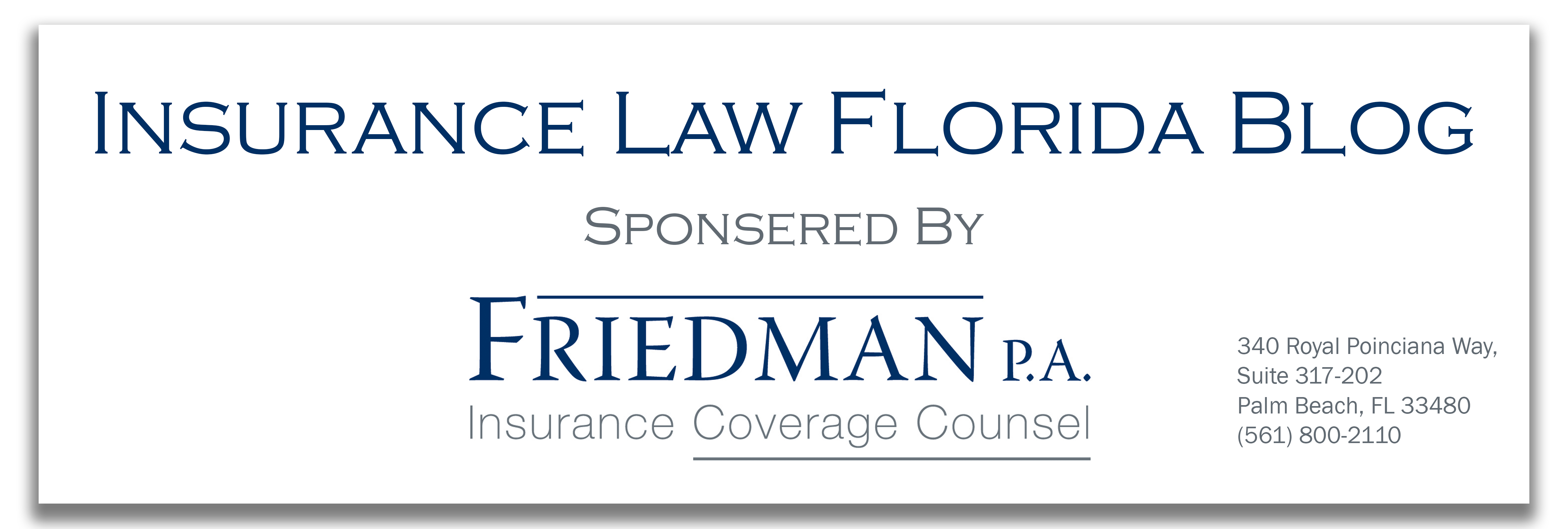A Florida House panel yesterday voted to scrap HB 427, the so-called bad faith reform bill that has been repeatedly rejected in various forms in the Florida House and Senate in recent years. Read the Orlando Sentinel’s story on the issue here.
The basic premise of HB 427 and similar bills is to restrict bad faith claims in third-party liability cases. In such cases, the insurer typically defends its policyholder under reservation of rights to later deny indemnity coverage for a judgment or settlement. The more serious the injury, and the larger the potential judgment, the more likely it is that the insurer will contest coverage. This also makes it more likely that the judgment will be excess of policy limits.
Long-standing law in Florida, which is similar to the law in many other states, is that the insurance company takes the risk when it turns down a settlement offer within policy limits and insists that the policyholder defend the case to verdict. If a plaintiff offers to settle a serious injury case for a $1 million policy limit, and the insurer rejects the offer (or, as is often the case, the insurer completely ignores the offer), then the insurer has created the risk of a multi-million dollar judgment. The law correctly places on the insurer, which controls the defense and settlement of the case, the consequences of its decision to reject the settlement opportunity.
Insurers argue that first-party bad faith claims have a statutory 60-day “cure” period, so the same should apply to third-party liability claims. But first-party claims are different because the policyholder is making the coverage claim against its own insurer and does not face an unknown, personal liability risk. In first-party cases, the dispute typically centers around the value of the policyholder’s damaged property. If the insurer low-balls its estimate, the policyholder can file a Civil Remedy Notice, which gives the insurer 60 days to fairly value the claim. If, before 60 day period expires, the insurer decides to pay the policyholder what it was seeking, then the previous bad faith conduct has been “cured”.
Insurers want the same second chance to remedy their bad faith conduct in the liability context. But timing is everything in the liability context. Typically, serious settlement discussions do not occur until a critical stage in the case (such as the summary judgment stage), or, even more commonly, until the eve of trial. Insurers want to be able to reject a policy limits demand, force a trial, and then wait for the outcome of the trial before deciding whether it really would have been better to have accepted the demand. It’s like placing a bet on the Super Bowl the day before, but then getting a chance to “remedy” your bet the day after.
If insurers are willing to bet that the jury’s verdict will be less than the settlement demand, then they need to take the risk that they will lose the bet and pay for the entire judgment. They should not be able to tender the policy limits after the bet is lost, and leave their policyholder to make good on the rest of their bet. The current law correctly places the excess judgment risk on the insurer at the time when the risk is real.
Monday morning quarterbacks may always be right, but their bets need to go on the table before the game starts.
